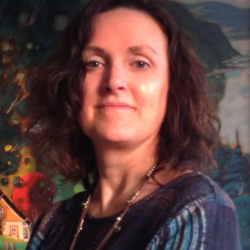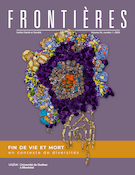Trajectoires du mourir et bonnes morts chez les migrants et non-migrants montréalais
Abstract
In this article, we examine the end of life (and medical assistance in dying) trajectories of migrants and non-migrants who died in Montréal. Drawing on recent research, we will show how the life cycle plays a role in this process. Based on 119 interviews with relatives from a variety of backgrounds who have accompanied a person at the end of life, we discuss “good death” through an analysis of the trajectories of dying and the elements that shape the perceived quality of “good death” amongst Montreal migrants and non-migrants, both young and old. We will see that the differential value accorded to age groups has an impact on these trajectories (Strauss, 1992) and, ultimately, on the perception of what a good or bad death is.
Keywords:
- life cycle,
- trajectory,
- hyperdiversity,
- dying,
- Montreal
Members and SHERPA Teams
Sylvie Fortin
Professor, Département d’anthropologie, Université de Montréal (UdeM)

Josiane Le Gall
In-House Researcher, SHERPA University Institute, CIUSSS Centre-Ouest-de-l'Ile-de-Montréal

